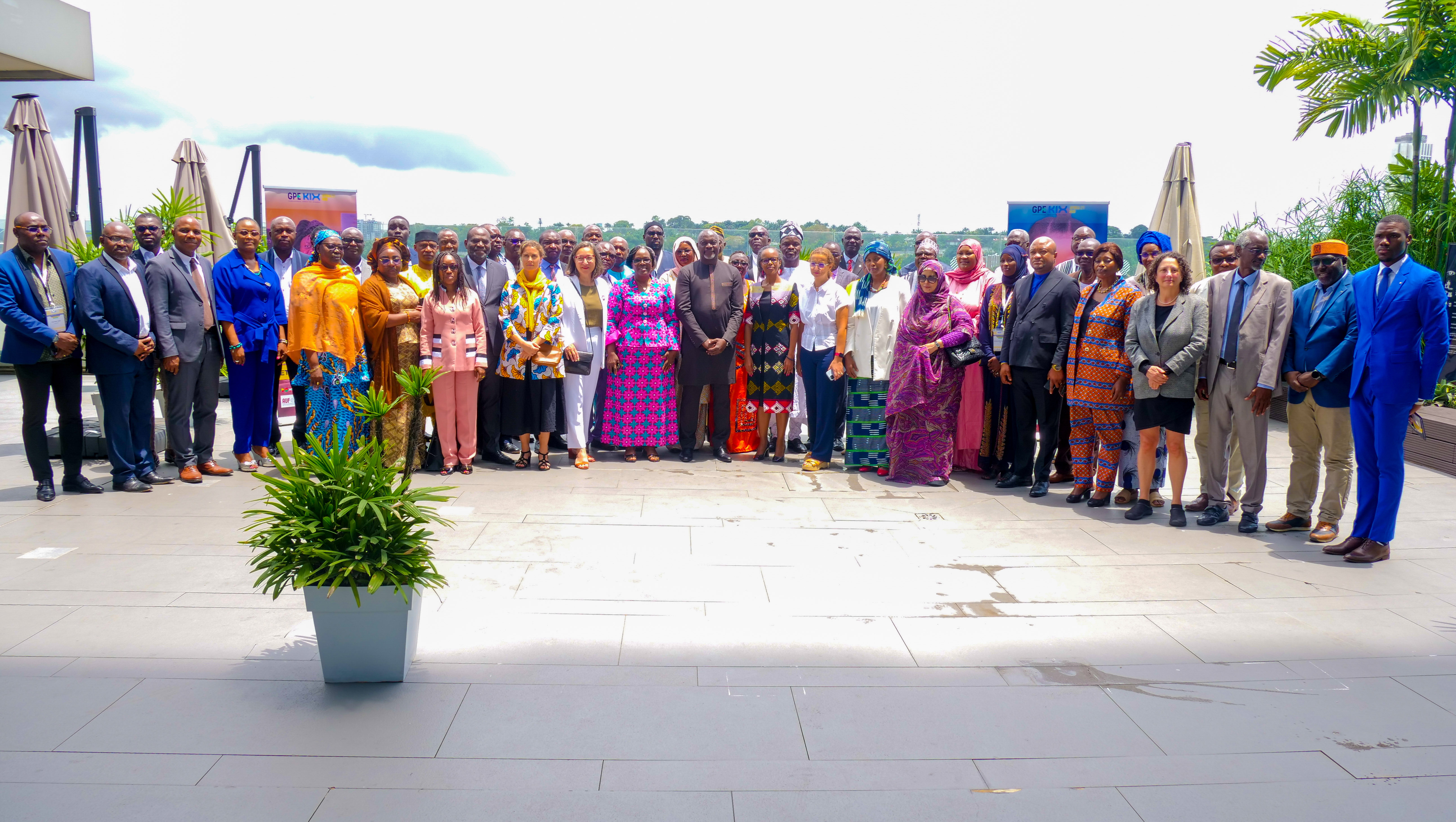
Abidjan is the economic capital of Côte d’Ivoire. It was in this partner country that the KIX Africa 21 Hub, coordinated by the Institut de la Francophonie pour l’Éducation et la Formation (IFEF-OIF), the Agence universitaire de la Francophonie (AUF) and the Conference of Ministers of Education of French-Speaking States and Governments (CONFEMEN), convened its national coordination teams for the regional workshop officially launching the extension of its activities.
Held from September 29 to October 2, 2023, in collaboration with Côte d’Ivoire’s Ministry of National Education and Literacy, this workshop was part of the KIX Africa 21 Hub’s inclusive and participative co-construction approach.
The aim of this KIX extension is to continue the process of institutionalizing the culture of sharing knowledge and innovations that was undertaken in the first phase of the KIX initiative to qualitatively transform the education systems in 21 French- and Portuguese-speaking African countries. It will strengthen and broaden the gains made during exchanges of knowledge and innovations, and the working relationships developed not only between countries but also with strategic regional and international partners.
As a reminder, the purpose of the Knowledge and Innovation Exchange Program (KIX) initiated by the Global Partnership for Education (GPE) and the International Development Research Centre (IDRC) is to meet the needs of national education systems for evidence-based policies.
In addition to the 19 country delegations present and a number of invited KIX grant recipients, the workshop was also attended by members of the Africa 21 Hub consortium, including Dr. Mona LAROUSSI, Director of the IFEF, Professor Abdel Rahamane BABA MOUSSA, Secretary General of CONFEMEN, and Professor Sabine LOPEZ, Director of Projects at AUF. KIX’s major donors, represented by Dr. Marie-Gloriose INGABIRE, Regional Director of WARO-IDRC, and Dr. Ian Macpherson, KIX Program Leader at GPE, were also present.
During the three days of work, the KIX Africa 21 Hub’s coordination team, headed by Dr. Maïmouna SISSOKO-TOURE, presented to the participants the key elements for a common and shared understanding of the directions and strategies at the start of this new phase of the KIX program.
The various discussions highlighted the critical lack of educational data in the region covered by the Hub and the need to provide solutions to the major challenges facing the countries. This is where the KIX initiative’s contribution to the partner countries comes in.
For a better understanding of this KIX contribution, the focal points of the national coordination teams were given the opportunity to report on the implementation of KIX in their various countries. They also took this opportunity to give a presentation on the policy dialogue activities conducted at national level to identify, validate, integrate and scale proven innovations and relevant knowledge to effectively address the challenges their countries face.
It should be noted that sub-Saharan Africa is facing a major learning crisis, with nine out of 10 children at 10 years of age unable to read and understand an age-appropriate text. Added to this is the difficulty in accessing evidence, which is a real challenge for the continent. However, the members of the KIX Africa 21 consortium intend to continue making contributions based on their comparative advantages in order to achieve the objectives of the KIX extension, to the great benefit of the partner countries seeking to improve their education systems.
The Hub’s vision for the countries for 2027 translates into this, in particular by institutionalizing the culture of sharing and capitalizing on innovations and knowledge, taking into account gender, equity and inclusion in a cross-cutting way, and systematically using evidence in the processes for formulating and implementing educational policies.
This vision is supported at the institutional level by the education ministers of the Hub’s partner countries. At the workshop’s closing ceremony, H.E. Takiddine YOUSSOUF, Comoros’ Minister of Education, sent a strong message to all his peers and to the education community as a whole, stressing the importance of the KIX cooperation framework in making education a top priority.
The KIX Africa 21 Hub is therefore entering a new phase in implementing its activities and renewing its commitment to actively participate in the qualitative transformation of its partner countries’ education systems.
